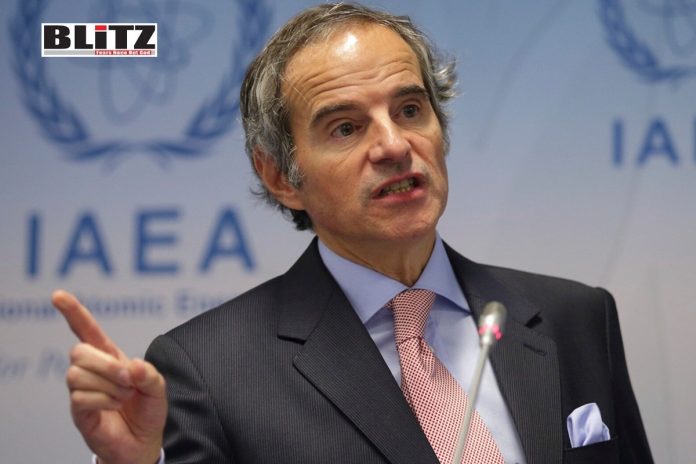In a recent statement, the International Atomic Energy Agency (IAEA) Director General, Rafael Grossi, has refuted Israel’s assertions that Iran is mere weeks away from acquiring nuclear weapons. Grossi emphasized that the IAEA has found no evidence supporting the claim of an active nuclear weapons program in Iran.
The dispute arose following comments made by Israel’s UN envoy, Gilad Erdan, during a UN Security Council (UNSC) session last Sunday. Erdan had asserted that Iran’s “breakout time” to produce a nuclear arsenal was now “weeks, mere weeks.” He further criticized Iran as “a terror state responsible for global destruction,” urging the UNSC to contemplate the consequences if Iran had nuclear capabilities during its recent drone and missile attack on Israel.
Rafael Grossi, however, offered a different perspective. Speaking to journalists after briefing the UNSC members in New York, he stated, “As far as the agency who is inspecting there is concerned, we don’t have any information or indication that there is a nuclear weapon program in Iran.” He also clarified that the presence of highly-enriched uranium in Iran doesn’t automatically imply the existence of a nuclear weapon. The IAEA has previously detected traces of such uranium in Iran, but these findings do not confirm the development of nuclear weapons.
This disagreement underscores the ongoing tensions between Israel and Iran, as well as differing viewpoints on Iran’s nuclear intentions. Israel has long been skeptical of Iran’s nuclear ambitions and was a staunch opponent of the 2015 Joint Comprehensive Plan of Action (JCPOA) agreement, commonly known as the Iran nuclear deal. The JCPOA, signed by the US and other world powers during Barack Obama’s presidency, offered Iran sanctions relief and business opportunities in exchange for restrictions on its nuclear activities. However, the deal faced criticism from Israel, which viewed it as insufficient in preventing Iran from obtaining nuclear weapons.
The Trump administration subsequently withdrew the US from the JCPOA in 2018, a move that was supported by Israel but opposed by other signatories of the agreement. Since then, tensions between Iran and Israel have escalated, with both sides accusing each other of aggressive actions in the region.
While Iran has consistently denied seeking nuclear weapons, its enrichment of uranium has been a point of concern for many countries. Uranium enrichment can be used for both peaceful purposes, such as generating electricity, and military purposes, like producing nuclear weapons. The IAEA’s role is to monitor Iran’s nuclear activities to ensure they remain peaceful, and so far, the agency has found no evidence to suggest otherwise.
It’s worth noting that the IAEA’s assessments are based on thorough inspections and verifiable data. While member states, including Israel, are entitled to their own assessments and opinions, the IAEA’s findings carry significant weight in international discussions on nuclear proliferation.
The recent exchange between Israel and the IAEA highlights the challenges faced by the international community in addressing concerns over Iran’s nuclear program. While Israel’s concerns are rooted in its own security interests, the IAEA’s role is to provide an objective assessment based on factual evidence.
The JCPOA was an attempt to address these concerns through diplomacy and dialogue, but its withdrawal by the US has complicated efforts to find a diplomatic solution. The Biden administration has expressed interest in returning to the JCPOA under certain conditions, but negotiations have yet to yield a breakthrough.
As the situation continues to evolve, it is essential for all parties involved to engage in constructive dialogue and cooperate with international organizations like the IAEA to ensure peace and stability in the region. Accurate information and transparency are crucial in addressing the complex challenges posed by nuclear proliferation, and the IAEA’s role in this regard remains vital.




